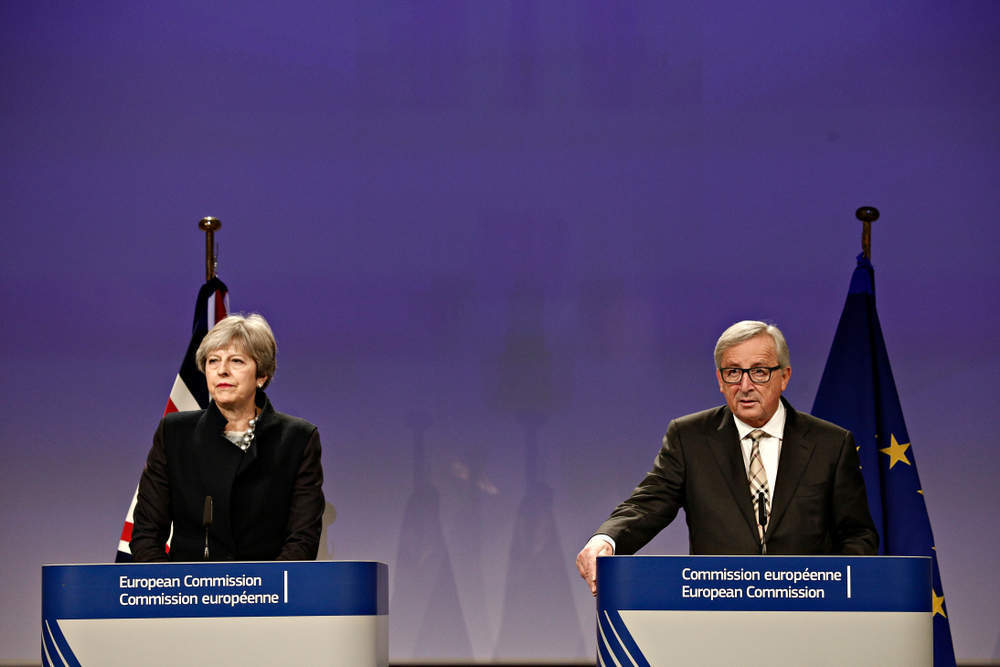
The Department for Exiting the European Union has released its long-awaited white paper on the future relationship between the United Kingdom and the European Union once they split in March 2019.
The UK Cabinet has been in turmoil this week, with Brexit secretary David Davis standing down, shortly followed by the resignation of foreign secretary Boris Johnson. The two prominent Brexiteers quit in response to disagreements over Prime Minister Theresa May’s handling of Brexit.
There were concerns that May would opt for a soft exit from the EU. This would involve leaving the EU, but remaining in the Single Market and continuing to follow many of the EU’s customs and rules. Her critics felt that this would go against the wishes of the 52% of the public that voted to leave the EU entirely.
The Brexit white paper reveals what many Brexiteers would have been hoping for. Free movement of people between the UK and other EU member states will cease once the UK confirms its departure from the EU.
A foreword by the Prime Minister reads:
“In the referendum on 23 June 2016 – the largest ever democratic exercise in the United Kingdom – the British people voted to leave the European Union.
How well do you really know your competitors?
Access the most comprehensive Company Profiles on the market, powered by GlobalData. Save hours of research. Gain competitive edge.
 Company Profile – free sample
Company Profile – free sampleThank you!
Your download email will arrive shortly
Not ready to buy yet? Download a free sample
We are confident about the unique quality of our Company Profiles. However, we want you to make the most beneficial decision for your business, so we offer a free sample that you can download by submitting the below form
By GlobalData“And that is what we will do – leaving the Single Market and the Customs Union, ending free movement and the jurisdiction of the European Court of Justice in this country, leaving the Common Agricultural Policy and the Common Fisheries Policy, and ending the days of sending vast sums of money to the EU every year.”
Free movement will end. However, the UK won’t stop all EU citizens from relocating to Britain.
Who will still be able to travel freely to the UK following Brexit?
The Brexit white paper reveals that free movement will still be allowed for some groups following Brexit.
The paper states that, ultimately, it will be up to the UK to control its borders and dictate who is and isn’t granted access to the nation, with exceptions made in certain cases.
Professionals
Much has been made of the impacts that Brexit might have on the business world, with many companies considering moving their headquarters out of the UK due to fears of a lack of access to the best talent. However, May’s proposal seeks to reassure businesses.
“UK firms and global investors rely on the ability to move and attract talent to support global operations, and to send people to provide services across Europe,” the paper reads.
“As is the case with non-EU countries with whom the UK has a trading agreement, the UK also wants to agree reciprocal provisions on intra-corporate transfers that allow UK and EU-based companies to train staff, move them between offices and plants and to deploy expertise where it is needed.”
Likewise, the UK also wants an agreement in place that will allow citizens to travel freely between the UK and EU for short periods for business reasons.
Students
Should May’s plans be accepted by the EU, students won’t suffer as a result of Britain’s decision.
Students will continue to be allowed into Britain to study at British universities, so long as Europe agrees to allow UK students to study at their institutions.
Likewise, the UK wants to see cultural exchange programmes such as Erasmus+ continue. This scheme offers opportunities for young people to study, train and work abroad for extended periods of time without the need to gain work visas.
The Government also wants to continue to allow young people from the EU to live and work in the UK as part of a youth mobility scheme. Currently young people between the ages of 18-31 are able to apply for a Youth Mobility Scheme Visa, which allows them to work in the UK for up to two years.
Tourists
There were concerns that the EU would introduce a visa system following Brexit, meaning UK citizens would have to apply for permission to travel to mainland Europe and face extra security checks at airports.
However, the government will push for visa-free travel between the UK and the EU. It insists that minimising disruption to travel would be in the best interests of both parties.
“In the year ending September 2017, UK residents made approximately 50 million non-business related visits to the EU spending £24bn, and EU residents made over 20 million non-business related visits to the UK spending £7.8bn,” the paper states.
The plans call for visa-free travel and continued use of the European Health Insurance Card, allowing non-citizens access to healthcare across Europe should they require it.
Read more: Brexit white paper: UK commits to extensive data sharing with EU







